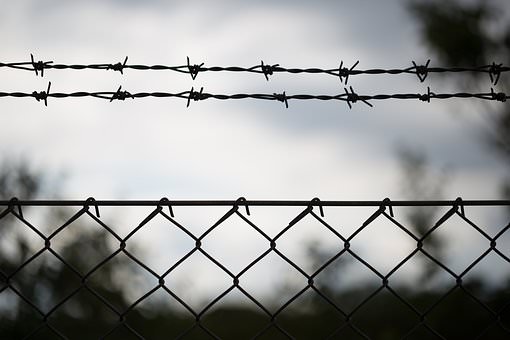 Is there anything you shouldn’t write about, when it comes to fiction? I made a quick trip to Chaptercon on Friday, to take part in one of the discussion panels, and the concept of taboos was something we touched on. Also, there have been a couple of recent fusses and calls for specific novels to be banned. In one case, it seems that the author;s intention was to portray an ignorant, complacent character getting educated to the error of her ways but (according to some readers) the author did a rotten job (ie the character was too obnoxious in her views and didn’t see the error of her ways fast enough or thoroughly enough) so the book should not have been published. The other book concerned an ethically dubious relationship/pseudoincest. As I haven’t read either book, I’m not going to go into detail (neither, though, looks like my cup of tea in the first place).
Is there anything you shouldn’t write about, when it comes to fiction? I made a quick trip to Chaptercon on Friday, to take part in one of the discussion panels, and the concept of taboos was something we touched on. Also, there have been a couple of recent fusses and calls for specific novels to be banned. In one case, it seems that the author;s intention was to portray an ignorant, complacent character getting educated to the error of her ways but (according to some readers) the author did a rotten job (ie the character was too obnoxious in her views and didn’t see the error of her ways fast enough or thoroughly enough) so the book should not have been published. The other book concerned an ethically dubious relationship/pseudoincest. As I haven’t read either book, I’m not going to go into detail (neither, though, looks like my cup of tea in the first place).
 But the question of how much the writer of fiction should self-censor is an interesting one. Many acknowledged-now-as-great novels were banned in the past (and, probably, plenty of shitty ones, too). Most of the traditional publishers who had erotica imprints in the 90s (the pre-50 Shades expansion in erotica) had certain limits – no incest, underage action, bestiality or necrophilia, for example) and most of the imprints and indies around now have similar policies – with the standard exemptions for paranormal stories. Amazon and the other outlets for the self-publisher seem to claim to have similar policies (and can and do pull books for ‘violating their standards’) but it only takes a couple of clicks to find some stuff that, well, many readers would be freaked out by if they were expecting a happy, raunchy romance. So it’s obviously not that difficult to put out stories that feature all kinds of sexual taboos, whether those are deliberately eroticized or presented in a shock-horror way that still enables a specific subset of readers to get their jollies.
But the question of how much the writer of fiction should self-censor is an interesting one. Many acknowledged-now-as-great novels were banned in the past (and, probably, plenty of shitty ones, too). Most of the traditional publishers who had erotica imprints in the 90s (the pre-50 Shades expansion in erotica) had certain limits – no incest, underage action, bestiality or necrophilia, for example) and most of the imprints and indies around now have similar policies – with the standard exemptions for paranormal stories. Amazon and the other outlets for the self-publisher seem to claim to have similar policies (and can and do pull books for ‘violating their standards’) but it only takes a couple of clicks to find some stuff that, well, many readers would be freaked out by if they were expecting a happy, raunchy romance. So it’s obviously not that difficult to put out stories that feature all kinds of sexual taboos, whether those are deliberately eroticized or presented in a shock-horror way that still enables a specific subset of readers to get their jollies.
 My personal take on the ethics of writing and publishing taboo-busting works is: go right ahead, if that’s what you want to do. Tackling something sensitive or contentious is a bit of a gamble, sure. Not least because you might fuck it up completely and write a bad, clunmsy book that you will absolutely cringe to look back on. But bear in mind that it’s a gamble. Not only do you have to try and second-guess what keywords will tempt the thrillseeking reader while not tipping off professioanl or amateur censors, you also run the risk of starting a socialmedia blitzkrieg. While we’ve all encountered a few dipshit reviewers who delight in slagging everything off with zero stars and irrelevant nasty comments, there are some popular bloggers and reviewers who are not content with giving a book they didn’t like a poor review. These people seem to get off on leading a wholesale charge against any author who they think is ‘wrong’ for writing something, and if they hold themselves too morally superior to include personal insults in their critiques, the army of muppets they command can be a different matter.
My personal take on the ethics of writing and publishing taboo-busting works is: go right ahead, if that’s what you want to do. Tackling something sensitive or contentious is a bit of a gamble, sure. Not least because you might fuck it up completely and write a bad, clunmsy book that you will absolutely cringe to look back on. But bear in mind that it’s a gamble. Not only do you have to try and second-guess what keywords will tempt the thrillseeking reader while not tipping off professioanl or amateur censors, you also run the risk of starting a socialmedia blitzkrieg. While we’ve all encountered a few dipshit reviewers who delight in slagging everything off with zero stars and irrelevant nasty comments, there are some popular bloggers and reviewers who are not content with giving a book they didn’t like a poor review. These people seem to get off on leading a wholesale charge against any author who they think is ‘wrong’ for writing something, and if they hold themselves too morally superior to include personal insults in their critiques, the army of muppets they command can be a different matter.
But if you have something important to say on a difficult topic, or a story that just won’t stay out of your head, it’s still worth writing it, just to see how it comes out. And, when it’s done, if you are satisfied with it, maybe other people will get something out of it as well.

